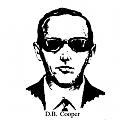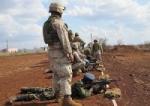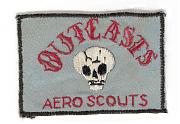Foreword
The Claremont Institute’s National Security Studies series is devoted to the serious discussion of what will be required to defend the United States and the West. Our Declaration of Independence teaches that government is instituted among men to secure life, liberty and the pursuit of happiness. The Constitution’s injunction to provide for the “common defense” requires a vigorous and vigilant approach to national security. American foreign policy dedicated to the security of the interests and rights of its citizens requires not only informed and prudent statesmanship, but also a responsible citizenry that is engaged in the national discussion about friends and foes. It is in this tradition of spirited self-government that we publish these studies.
Iran has long been one of the leading state sponsors of terrorism worldwide. Iran’s ruling mullahs are extending their regional influence in the fog of the Iraq conflict. Their pursuit of nuclear weapons and a robust ballistic missile capability continues apace. Thomas Joscelyn argues that Iran is guilty of far more. An emboldened Iran has vicariously waged war against America for nearly three decades, yet America’s leaders are unwilling to admit what is plain for all to see.
Because of our reluctance to confront this terrorist state openly, we are losing ground on a vital front in our war against radical Islam. Through careful analysis of open sources, Joscelyn explains both the intelligence establishment’s misreading of history and the numerous but unfounded assumptions by today’s elite concerning Iran and its link to terrorist operations.
One of the most damaging and unwarranted assumptions made is that sectarian differences within Islam should prevent cooperation in operations against the West. A brief look at the evidence shows that Iran and others have had no trouble in putting aside differences in theology to harm their enemies, especially America. Specific links include the Iranian connection to al-Qaeda in the Sudan, a partnership brokered by Hassan al-Turabi, one-time leader of Sudan’s ruling party, the National Islamic Front. Next, there is Imad Mugniyah, Hezbollah’s master terrorist, who helped Osama bin Laden upgrade al-Qaeda’s capabilities in the early 1990s. The 1996 Khobar Towers bombing, long suspected to be the handiwork of Hezbollah under direction from Iran, may also have had a junior partner in al-Qaeda. The 9/11 Commission established that the 1998 U.S. embassy bombings in Kenya and Tanzania were the work of Hezbollah-trained al-Qaeda operatives. There are disturbing signs that may implicate Iran in, at the very least, facilitating travel for some of the 9/11 hijackers. Finally, there is extensive evidence that Iran aided al-Qaeda’s retreat from Afghanistan in late 2001 and has allowed al-Qaeda agents to operate from Iranian soil ever since.
Recognizing this pattern is a prerequisite to restoring a sound policy towards Iran. We must be honest about Iran’s past actions over the last three decades. We must also publicly investigate Iran and Hezbollah’s possible involvement in 9/11 and other al-Qaeda attacks. Evidence not harmful to current national security assets or strategy should be declassified. We should demand that Iran turn over any al-Qaeda fighters seeking refuge on Iranian soil. Finally, we should set about the business of devising a broad and coherent strategy for confronting Iran. How we go about meeting the Iranian threat is open for debate, but we cannot hope to resolve this vital issue by continuing to pretend that Iran does not play a large role in the terrorists’ ongoing war against America.
The American regime has faced down larger and more formidable foes than Iran, Hezbollah, and al-Qaeda. But in an age of increasing technological sophistication, it is irresponsible to sit idly by while threats gather and foreign actors are allowed to carry out acts of war. The way forward requires prudence, clear strategic thinking, and statesmanship. Thomas Joscelyn’s compelling case that we must first open our eyes is a vital contribution to what we hope will be a new direction for American foreign policy.
Brian T. Kennedy
President, The Claremont Institute
September 11, 2007







 ), but Thomas Joscelyn presents an interesting unclas analysis of events over the past 27 years; found this on the recent 9/11 anniversary on Clairmont Institute's website. Can anyone comment on the credibility of the author or the Clairmont Inst.?
), but Thomas Joscelyn presents an interesting unclas analysis of events over the past 27 years; found this on the recent 9/11 anniversary on Clairmont Institute's website. Can anyone comment on the credibility of the author or the Clairmont Inst.?





Bookmarks